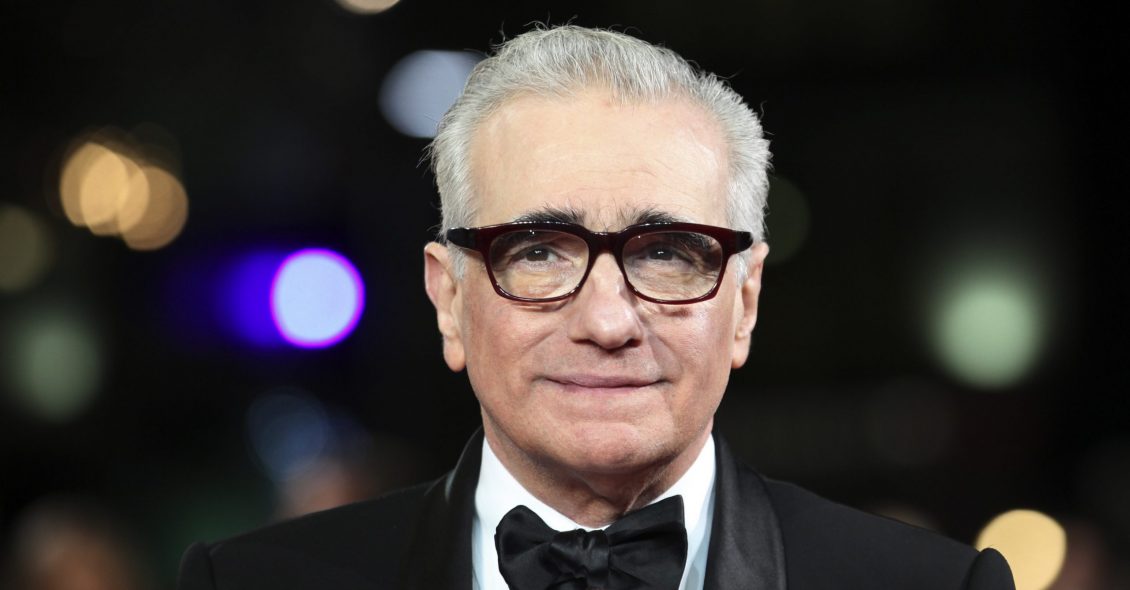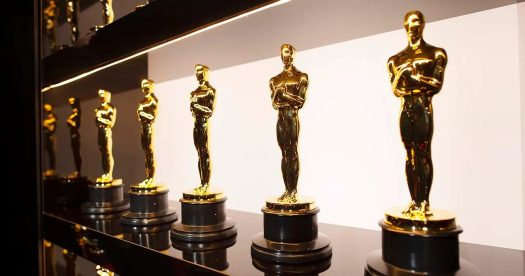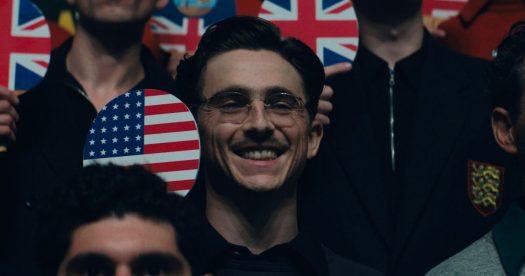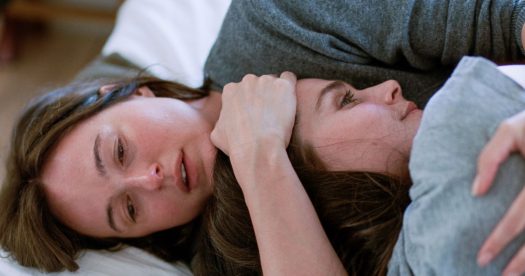
Veja a tradução da carta de Martin Scorsese para sua filha
O diretor Martin Scorsese resolveu escrever uma carta aberta para sua filha Francesca, que tem 14 anos. Nela, o diretor, que está lançando seu novo filme “O Lobo de Wall Street”, fala sobre como enxerga o futuro pelas lentes do cinema. Provavelmente tocado pelo fato de ter convivido bastante com ela, já que foi pai em idade um pouco mais avançada, Scorsese coloca para fora tudo o que pensa sobre o futuro, completando a mensagem que passou a ela quando fez “A Invenção de Hugo Cabret”, filme que realizou pensando nela.
Confira abaixo a carta original e a tradução (feita por mim):
—
Dearest Francesca,
I’m writing this letter to you about the future. I’m looking at it through the lens of my world. Through the lens of cinema, which has been at the center of that world.
For the last few years, I’ve realized that the idea of cinema that I grew up with, that’s there in the movies I’ve been showing you since you were a child, and that was thriving when I started making pictures, is coming to a close. I’m not referring to the films that have already been made. I’m referring to the ones that are to come.
I don’t mean to be despairing. I’m not writing these words in a spirit of defeat. On the contrary, I think the future is bright.
We always knew that the movies were a business, and that the art of cinema was made possible because it aligned with business conditions. None of us who started in the 60s and 70s had any illusions on that front. We knew that we would have to work hard to protect what we loved. We also knew that we might have to go through some rough periods. And I suppose we realized, on some level, that we might face a time when every inconvenient or unpredictable element in the moviemaking process would be minimized, maybe even eliminated. The most unpredictable element of all? Cinema. And the people who make it.
I don’t want to repeat what has been said and written by so many others before me, about all the changes in the business, and I’m heartened by the exceptions to the overall trend in moviemaking – Wes Anderson, Richard Linklater, David Fincher, Alexander Payne, the Coen Brothers, James Gray and Paul Thomas Anderson are all managing to get pictures made, and Paul not only got The Master made in 70mm, he even got it shown that way in a few cities. Anyone who cares about cinema should be thankful.
And I’m also moved by the artists who are continuing to get their pictures made all over the world, in France, in South Korea, in England, in Japan, in Africa. It’s getting harder all the time, but they’re getting the films done.
But I don’t think I’m being pessimistic when I say that the art of cinema and the movie business are now at a crossroads. Audio-visual entertainment and what we know as cinema – moving pictures conceived by individuals – appear to be headed in different directions. In the future, you’ll probably see less and less of what we recognize as cinema on multiplex screens and more and more of it in smaller theaters, online, and, I suppose, in spaces and circumstances that I can’t predict.
So why is the future so bright? Because for the very first time in the history of the art form, movies really can be made for very little money. This was unheard of when I was growing up, and extremely low budget movies have always been the exception rather than the rule. Now, it’s the reverse. You can get beautiful images with affordable cameras. You can record sound. You can edit and mix and color-correct at home. This has all come to pass.
But with all the attention paid to the machinery of making movies and to the advances in technology that have led to this revolution in moviemaking, there is one important thing to remember: the tools don’t make the movie, you make the movie. It’s freeing to pick up a camera and start shooting and then put it together with Final Cut Pro. Making a movie – the one you need to make – is something else. There are no shortcuts.
If John Cassavetes, my friend and mentor, were alive today, he would certainly be using all the equipment that’s available. But he would be saying the same things he always said – you have to be absolutely dedicated to the work, you have to give everything of yourself, and you have to protect the spark of connection that drove you to make the picture in the first place. You have to protect it with your life. In the past, because making movies was so expensive, we had to protect against exhaustion and compromise. In the future, you’ll have to steel yourself against something else: the temptation to go with the flow, and allow the movie to drift and float away.
This isn’t just a matter of cinema. There are no shortcuts to anything. I’m not saying that everything has to be difficult. I’m saying that the voice that sparks you is your voice – that’s the inner light, as the Quakers put it.
That’s you. That’s the truth.
All my love,
Dad
—
Tradução:
Querida Francesca,
Escrevo esta carta para você sobre o future. Olho para ele por meio das lentes do meu mundo. Pelas lentes do cinema, que são o centro do meu mundo.
Nos últimos anos, percebi que a ideia sobre o cinema com a qual cresci, que é aquela que eu mostro a você desde que era uma criança, e com a qual eu me desenvolvi quando comecei a fazer filmes, está chegando ao fim. Não me refiro aos filmes que já foram feitos, mas aos que estão por vir.
Eu não quero ser desanimador. Não escrevo estas palavras com o espírito de defesa. Pelo contrário, acredito que o futuro é brilhante.
Sempre soubemos que os filmes são um negócio, e que a arte do cinema se tornou possível porque foi alinhada a estas condições. Nenhum de nós, que começamos nos anos 60 e 70 tínhamos ilusões quanto a isso. Sabíamos que teríamos que trabalhar duro para proteger o que amamos. Também sabíamos que às vezes temos que passar por períodos complicados. E acredito que nós percebemos, em certo nível, que deveremos chegar a um período em que cada elemento inconveniente ou imprevisível na produção de filmes seria minimizado, talvez até eliminado. Qual o elemento mais imprevisível de todos? O Cinema. E as pessoas que o fazem.
Não quero repetir o que já foi dito e escrito tantas vezes antes de mim, sobre as mudanças no Mercado, e eu me animo com as exceções para a tendência geral na produção de filmes – Wes Anderson,, Richard Linklater, David Fincher, Alexander Payne, os irmãos Coen, James Gray e Paul Thomas Anderson estão conseguindo fazer seus filmes, e Paul não apenas fez “O Mestre” em 70mm, mas conseguiu exibi-lo desta forma em algumas cidades. Qualquer um que se importa com o cinema deveria agradecer.
Também me sinto motivado pelos artistas que continuam a fazer seus filmes por todo o mundo, na França, Coreia do Sul, Inglaterra, Japão, África. Está ficando cada vez mais difícil mas eles estão fazendo seus filmes.
No entanto, eu não acho que estou sento pessimista quando digo que o cinema como arte e mercado está em uma encruzilhada. O entretenimento audiovisual e o que entendemos como cinema – imagens em movimento concebidas por indivíduos – parecem lançados em diferentes direções. No futuro, você provavelmente vai ver cada vez menos cinema em telas de multiplexes e cada vez mais em cinemas menores, online, e, imagino eu, em locais e circunstâncias que não posso prever.
Então por que o futuro é tão brilhante? Porque pela primeira vez na história de todas as formas de arte, filmes realmente podem ser feitos com muito pouco dinheiro. Isso não era dito quando eu era jovem, e filmes de orçamento muito baixo sempre foram exceção e não regra. Agora, é o contrário. Você pode conseguir imagens lindas com câmeras acessíveis. Você pode gravar som. Você pode editar e misturar e corrigir cores em casa. Isso tudo vai acontecer.
Mas com toda a atenção voltada para o maquinário de fazer filmes e para os avanços em tecnologia que levaram a esta revolução no cinema, há algo importante para se lembrar: as ferramentas não fazem o filme, você faz o filme. É libertador pegar uma câmera e começar a filmar e então juntar tudo no Final Cut Pro. Fazer um filme (aquele que você precisa fazer) é diferente. Não existem atalhos.
Se John Cassavetes, meu amigo e mentor, estivesse vivo hoje, ele certamente estaria usando todos os equipamentos disponíveis. Mas ele estaria dizendo as mesmas coisas que sempre disse: você tem que ser totalmente dedicado ao trabalho, dar tudo de si, e tem que proteger a primeira conexão que te levou a fazer o filme inicialmente. Você tem que proteger isso com a sua vida. No passado, devido ao fato de ser caro fazer filmes, tínhamos que nos proteger contra a exaustão e o compromisso. No futuro, você terá que se proteger contra outra coisa: a tentação de ir com o fluxo e permitir que o filme fique à deriva e siga sozinho.
Isso não é só uma questão de cinema. Não existem atalhos para nada. Não estou dizendo que tudo tem que ser difícil. Estou dizendo que a voz que te acende é a sua voz: a luz interior, como os Quakers dizem.
Esta é você. Esta é a verdade.
Com todo meu amor,
Papai.



